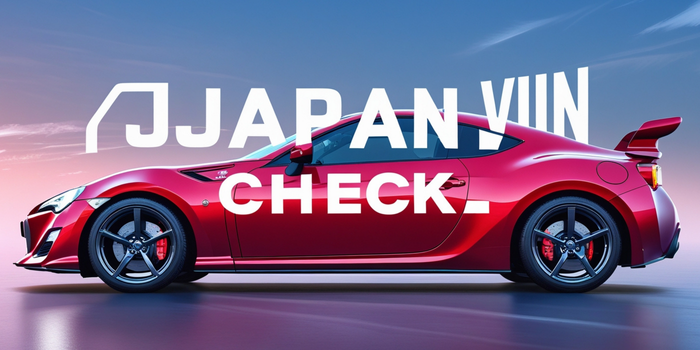
How to Buy a Car in Japan Auction
Buying a car from a Japanese auction is a great way to access quality vehicles at competitive prices. Japanese car auctions offer an extensive range of cars, from lightly used models to high-performance classics, often in excellent condition due to Japan's rigorous vehicle maintenance culture. However, navigating these auctions can feel overwhelming if you are unfamiliar with the process. This guide will walk you through each step, from finding your ideal vehicle to handling payment and shipping. In this Article , We will share the deep knowledge on how to buy a car in japan auction .
Why Buy a Car from a Japanese Auction?
Buying a car from a Japanese auction has several benefits. First, Japanese cars are known for their reliability and high quality. Japanese owners tend to take good care of their cars, meaning you'll find vehicles with lower mileage and less wear and tear. Second, the range is impressive. From luxury sedans to eco-friendly hybrids, Japanese auctions cater to every taste and budget.
How to Buy a Car in Japan Auction
The process of buying a car in a Japan auction is straightforward once you understand the basic steps. Here’s how to make it happen:
See More : Best Japanese car auction sites
Find a Car in the Auction System
The first step in your journey to buy a car in a Japan auction is to find a car that meets your needs. Japanese car auctions offer an extensive selection, so it's important to know what you're looking for. Start by identifying the model, year, and specifications you want.
Most auction sites, like Nikkyo Auction or Chubu Auto Auction, provide search tools to help narrow down options. These tools let you browse by mileage, year, vehicle grade, and more. Be sure to study the auction sheet this document is your key to understanding the car’s condition. Each vehicle is graded based on factors like chassis quality, mileage, and interior wear, so understanding these grades is crucial for making an informed choice.
See More : Japan vin check
Send Inquiry to Confirm Car Details
Once you’ve found a car, the next step is to send an inquiry to the auction house or a trusted exporter. This step is vital as it allows you to confirm essential details, like bid history, car specifications, and any extra fees or requirements. If you’re using an agent in Japan, they will handle this for you. An agent’s role is to clarify details, provide additional photos, and ensure that all the information on the auction sheet is accurate.
Some important questions to ask include:
- The car’s exact mileage and service history.
- Any past repairs or modifications.
- Export requirements for your destination country.
With these details in hand, you’ll be ready to move forward confidently.
See More : window tinting cost
Agreement & Get an Invoice
Once you’ve decided on a car, it’s time to enter into an agreement and receive an invoice. This step solidifies your purchase intention and outlines the costs associated with the car. The invoice will typically include the car's auction price, exporter fees, and any additional charges. It's essential to review the invoice carefully and ensure all fees are included to avoid unexpected costs later.
When the invoice is sent, it’s a sign of trust between you and the auction house. You’re officially a step closer to owning your car from Japan. Make sure to double-check details like the chassis number, car model, and purchase terms on the invoice.
Payment for the Car
With the invoice in hand, the next step is payment. Auction houses in Japan typically accept payments in Japanese yen (JPY) or USD via bank transfer. This process can take a few days, so ensure you’re aware of your payment deadline.
Some essential payment tips:
- Use wire transfer for a secure transaction.
- Ensure the correct amount in Japanese yen, as exchange rates may vary.
- Clarify with your bank regarding any fees on international transfers.
Your payment acts as a deposit on the car, and if everything goes smoothly, it will be deducted from the final cost. Should you need to cancel, some deposits are refundable, but it depends on the auction house and terms of sale.
Shipment of Your Car
Once the payment is received, the auction house or your agent will arrange for shipping. At this point, you’ll select a shipping line and a vessel. They will provide options such as FOB (Free on Board) or CIF (Cost, Insurance, and Freight). FOB is cheaper but does not cover insurance, while CIF includes both shipping and insurance.
Your car will be shipped to the nearest port in your country. Make sure you have a Bill of Lading and other necessary documentation, as you’ll need these for customs clearance. Shipment times can vary but usually take 4-8 weeks, depending on your location.
Customs Clearance and Import Process
After your car arrives at the port, you’ll need to handle customs clearance. Customs procedures vary by country, so it's essential to be prepared for your country's import laws. You may need to pay import duties, inspection fees, and registration fees. It’s a good idea to contact a customs broker in advance, as they can help you navigate the process efficiently.
Documents you’ll need include:
- Bill of Lading.
- Purchase invoice.
- Vehicle registration documents.
Once cleared, you’re free to arrange transportation for your vehicle to its final destination.
Factors that Influence Car Auction Bid History
Understanding bid history trends can give you a competitive edge. The final bid price often depends on factors such as:
- The car’s age, mileage, and condition.
- Demand for specific models or makes.
- Auction seasonality (bids may be higher during popular seasons).
Knowing these factors can help you make strategic bidding decisions, especially if you’re on a tight budget. Checking past bids for similar vehicles is also a helpful way to estimate an appropriate bid range.
FAQs
How do I know if the car is in good condition?
Check the auction sheet and confirm with your agent for specific details. Japanese auctions provide grading, but having an agent verify is essential.
Can I bid directly, or do I need an agent?
Most auctions require a local representative. Agents in Japan handle the bid, communication, and logistics on your behalf.
Are there hidden costs?
Costs like customs, import duties, and local registration may apply after purchase. Always ask for a complete cost breakdown in advance.
Final Tips for Buying a Car from Japan Auction
Research the Auction House: Trusted houses like Chubu Auto Auction and Nikkyo Auction offer more reliability.
Use an Agent: A reliable agent makes the entire process easier and ensures no details are missed.
Prepare for Shipping and Customs: Knowing your country’s import regulations helps avoid surprises at customs.
Buying a car in Japan through an auction can be an exciting and rewarding experience. With careful planning and a clear understanding of each step, you can successfully navigate the process and find a car that meets your needs.
Tags
Also Read

How to Buy a Car in Japan Auction
How to Buy a Car in Japan Auction with steps on bidding, inspection, payment, and shipping process for secure and ...
| 29/04/25

how much does window tinting cost
Find out how much does window tinting cost based on vehicle type, tint quality, and installation method. Compare prices and ...
| 28/04/25

Car Auction Bid History: Unlocking the Secrets to Smarter Bidding
Car Auction Bid History with real-time updates on bids, winning amounts, and buyer interest. Track past and current auction activity ...
| 24/04/25

what is the best japanese car auction site
what is the best japanese car auction site ...
| 15/04/25

Japan VIN Check: Your Ultimate Guide to Vehicle History and Safety
Japan Vin Check allows you to verify the history and authenticity of a vehicle imported from Japan using its VIN ...
| 15/04/25